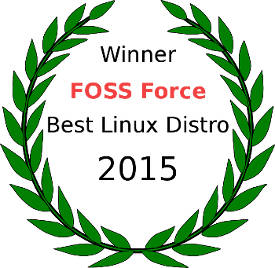Larry the BSD Guy
First things first: I’m the new kid on the BSD block. While in the process of still figuring things out on PC-BSD — dang that Synaptics! — and finding a place to contribute in the community, I have no real handle on the nuances of the inner workings of the wider BSD community. To my self-promoting credit, I am a quick study and the learning curve is not as difficult as I imagined. On the whole, I like what I see in those contributing to BSD, especially in the way of eagerness to help new users.
However, when Randi Harper decided to bail on participation in FreeBSD as she outlined in her blog, it raises the question, “Where have we seen this before?” Taking a step back, it raises the question, “Why does this keep happening in FOSS communities?”

 One of my New Year’s resolutions this year is to only use cloud services when absolutely necessary. Web apps are great tools when you need to collaborate at a distance, but other than that you’re better off keeping your work on your own machines, for privacy reasons if nothing else.
One of my New Year’s resolutions this year is to only use cloud services when absolutely necessary. Web apps are great tools when you need to collaborate at a distance, but other than that you’re better off keeping your work on your own machines, for privacy reasons if nothing else. With the holidays and all, the month of December wasn’t as action packed as some of the past months have been concerning the Raspberry Pi, but there were still some interesting stories that occurred. Let’s take a minute to reflect back on the Raspberry Pi and December.
With the holidays and all, the month of December wasn’t as action packed as some of the past months have been concerning the Raspberry Pi, but there were still some interesting stories that occurred. Let’s take a minute to reflect back on the Raspberry Pi and December.


 Now that we’ve put 2015 to bed — and not a moment too soon — we’ll take one more look at the week that was and send everyone off rolling into 2016.
Now that we’ve put 2015 to bed — and not a moment too soon — we’ll take one more look at the week that was and send everyone off rolling into 2016.
 You might have also noticed that the expansion began just after our May fundraising campaign in which you gave us $2,300 to improve our site. Thanks to you, we have been able to pay our writers — not much mind you, truthfully a small fraction of what they should be paid — which has been a key element to our improved coverage.
You might have also noticed that the expansion began just after our May fundraising campaign in which you gave us $2,300 to improve our site. Thanks to you, we have been able to pay our writers — not much mind you, truthfully a small fraction of what they should be paid — which has been a key element to our improved coverage.